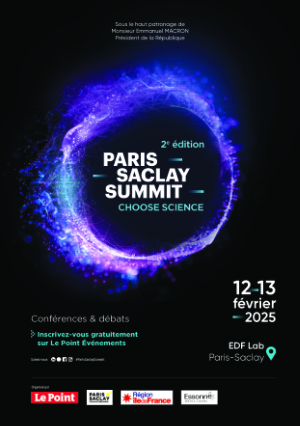Development of a digital twin of electrical actuator based on a physical-informed machine learning model
| ABG-127044 | Thesis topic | |
| 2024-11-21 | Public funding alone (i.e. government, region, European, international organization research grant) |
- Engineering sciences
- Energy
Topic description
The interest in digital twins has been demonstrated in several fields, such as energy, aeronautics, transport, medicine, etc. It consists of a virtual representation of a system aiming to connect the digital and physical systems. The advantages of this representation are multiple, notably the real-time collection of data for diagnostic and prognostic purposes and also the possibility of applying multitudes of tests that cannot be created/tested directly on the real system. However, for complex multi-physics systems with high dynamics and uncertainties, which is the case for energy conversion systems, developing a digital twin faces several challenges, including developing precise and fast models based on physics or data, and their implementation.
Indeed, the representation method influences the fidelity of the adopted solution. On one hand, the methods based on physics-based models, in particular derived from finite element simulation, can offer good accuracy but are characterized by high computational times that can be a drawback for real-time applications. On the other hand, data-driven methods are suitable with digital twins. However, they require adequate datasets, which are not easy to obtain and may not cover all the operating conditions of the system under study. Therefore, a hybrid representation combining physical knowledge and data-driven models associated with machine learning techniques could be relevant for developing efficient and high-fidelity digital twins.
Research subject work plan:
This PhD thesis aims to propose and implement methods for developing a digital twin for an electrical actuator. The model should reflect coupled electromagnetic and mechanical phenomena and also include uncertainties. This digital twin will be used to monitor the system's operation and health to extend the electrical motor's lifespan. An emphasis will be placed on integrating physical knowledge using artificial intelligence (AI). The PhD work will be developed with the following steps:
- State of art
The first step of this work will be to elaborate on the state of the art on the following topics:
- Design of electrical machine,
- Datadriven modelling methods,
- Machine learning methods integrating physics,
- Classification techniques.
- Contributions
The second step will be the development of the digital twin of the electrical actuator based on a physical-informed machine learning model. The model accuracy will be the key performance indicator for the different machine learning techniques that will be evaluated. The practical issues regarding the implementation of the digital twin will also be addressed. FPGA or GPU computing resources are potential candidates for implementing high-fidelity and accurate digital twins for real-time applications. Finally, the digital twin is expected to be an efficient benchmark to evaluate fault diagnosis methodologies for condition-based health monitoring.
References:
-Y. Wu, B. Sicard, S. A. Gadsden, ‘Physics-informed machine learning: A comprehensive review on applications in anomaly detection and condition monitoring.’ Expert Systems with Applications, Volume 255, Part C, 2024.
-Y. Fassi, V. Heiries, J. Boutet and S. Boisseau, ‘Toward Physics-Informed Machine-Learning-Based Predictive Maintenance for Power Converters—A Review,’ in IEEE Transactions on Power Electronics, vol. 39, no. 2, pp. 2692-2720, Feb. 2024.
-Singh, R.R., Bhatti, G.,Kalel, D., Vairavasundaram, I., Alsaif, F. ‘Building a Digital Twin Powered Intelligent Predictive Maintenance System for Industrial AC Machines.’ Machines 2023, 11, 796.
-Yigit A. Yucesan, Felipe A.C. Viana, ‘Hybrid physics-informed neural networks for main bearing fatigue prognosis with visual grease inspection.’ Computers in Industry, Volume 125, 2021.
-A. Sapena-Bano, F. Chinesta, R. Puche-Panadero, J. Martinez-Roman, M. Pineda-Sanchez, ‘Model reduction based on sparse identification techniques for induction machines: Towards the real-time and accuracy-guaranteed simulation of faulty induction machines.’ International Journal of Electrical Power & Energy Systems, Volume 125, 2021.
Starting date
Funding category
Funding further details
Presentation of host institution and host laboratory
Située au Sud de Paris, au cœur d’un vaste territoire, composé de quatre départements franciliens et de nombreux sites stratégiques (Courtabœuf, Évry, Massy, Orsay, Saclay, Saint-Quentin-en-Yvelines, Vélizy et la vallée de la Bièvre), l’Université Paris-Saclay est un maillage unique de 5 facultés, 3 IUT, 5 grandes écoles, 2 universités membres associés et 7 organismes de recherche, réunis autour d’une ambition commune, celle d’associer leurs forces pour constituer un cluster scientifique de premier plan au service de la recherche, de la formation, de la réussite étudiante et de l’innovation, avec l’ambition de contribuer au développement d’une société plus juste et plus vivable. 1ère université française et dans le top 20 mondial, l’Université Paris-Saclay couvre les secteurs des sciences et ingénierie, des sciences de la vie et de la santé, et des sciences humaines et sociales.
PhD title
Country where you obtained your PhD
Institution awarding doctoral degree
Graduate school
Candidate's profile
Titulaire d'un master ou équivalent dans le domaine de l'énergie
Curieux et motivé
Vous avez déjà un compte ?
Nouvel utilisateur ?
Get ABG’s monthly newsletters including news, job offers, grants & fellowships and a selection of relevant events…
Discover our members
 Généthon
Généthon  Groupe AFNOR - Association française de normalisation
Groupe AFNOR - Association française de normalisation  Institut Sup'biotech de Paris
Institut Sup'biotech de Paris  PhDOOC
PhDOOC  Tecknowmetrix
Tecknowmetrix  Nokia Bell Labs France
Nokia Bell Labs France  ADEME
ADEME  ONERA - The French Aerospace Lab
ONERA - The French Aerospace Lab  Laboratoire National de Métrologie et d'Essais - LNE
Laboratoire National de Métrologie et d'Essais - LNE  ANRT
ANRT  MabDesign
MabDesign  CESI
CESI  SUEZ
SUEZ  Institut de Radioprotection et de Sureté Nucléaire - IRSN - Siège
Institut de Radioprotection et de Sureté Nucléaire - IRSN - Siège  TotalEnergies
TotalEnergies  CASDEN
CASDEN  Ifremer
Ifremer  MabDesign
MabDesign  Aérocentre, Pôle d'excellence régional
Aérocentre, Pôle d'excellence régional




